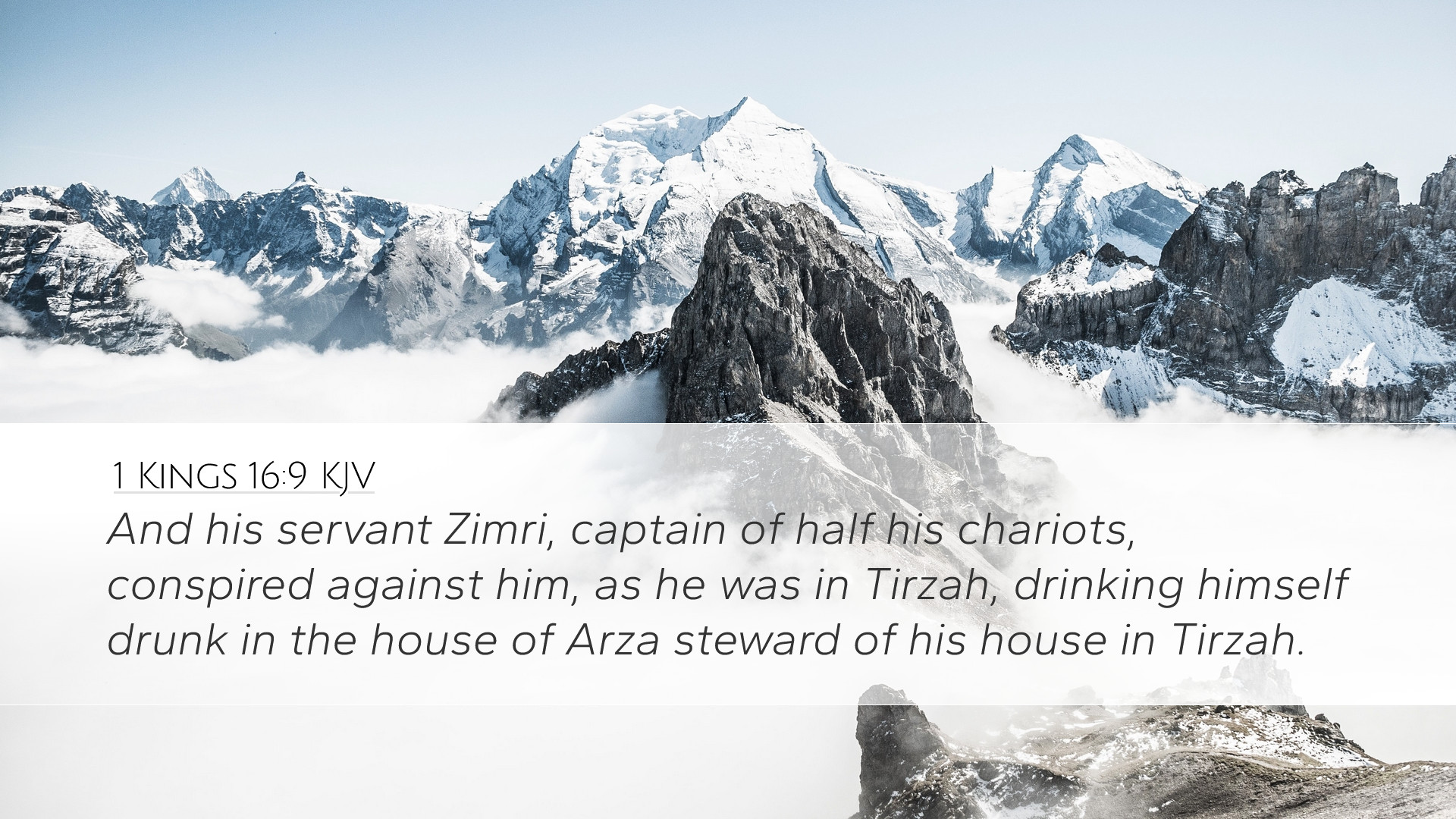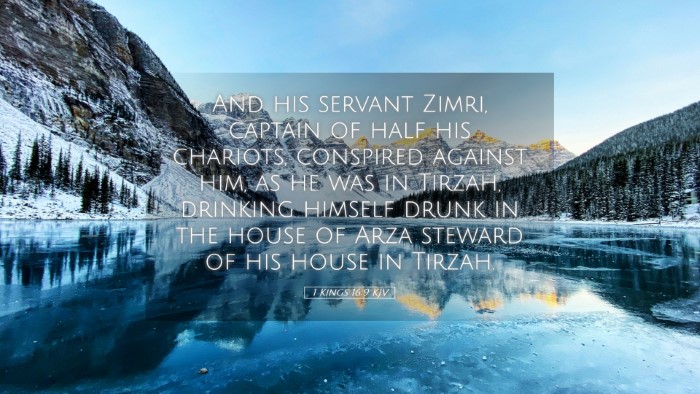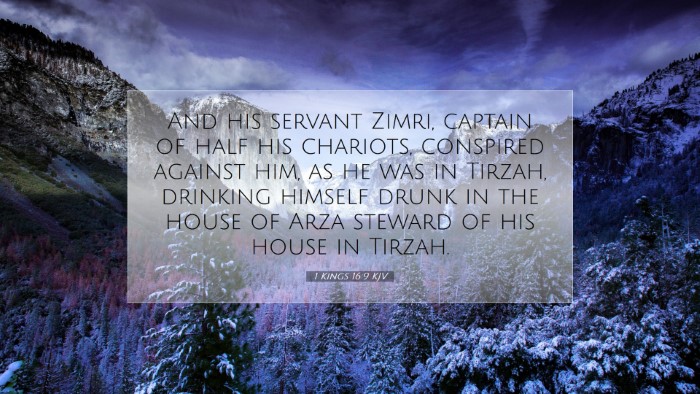Commentary on 1 Kings 16:9
Verse: "And Zimri, the captain of half his chariots, saw that the city was taken; and he went into the palace of the king's house, and burnt the king's house over him with fire, and died." (1 Kings 16:9)
Introduction
This verse marks a decisive moment in the narrative of the kings of Israel, illustrating themes of ambition, judgment, and the consequences of sin. Zimri's actions epitomize the chaotic political landscape of the Northern Kingdom, characterized by its intrigue and violence.
Contextual Overview
The historical setting of this verse is crucial for understanding its implications. After the death of King Elah, Zimri, a military captain, seizes the opportunity to claim the throne through regicide. This event comes amid a backdrop of political turmoil that followed King Ahab's reign, leading to further division and conflict within Israel.
Exegesis of 1 Kings 16:9
This verse can be dissected into key elements, each reflecting significant theological and moral lessons.
- Zimri's Ambition: Zimri is introduced as a captain of half the king's chariots, signifying his military prowess and ambition. His rise to power reflects human nature's tendency to seek authority, often through unethical means.
- The Fall of Elah: The mention of the city being taken points to the fragility of political power. Elah's demise is indicative of God's sovereign control over the affairs of kings, a theme echoed throughout the scriptures.
- The Palace Fire: The act of burning the king's house indicates complete destruction, both of the physical structure and of Elah's lineage. This drastic measure serves as a metaphor for the end of corruption, yet it also embodies tragic judgment.
- Zimri's End: Zimri's choice to die in the flames he ignited speaks volumes about despair and the inevitable consequences of unrepentant sin.
Theological Themes
Several theological themes arise from this singular moment in scripture.
- Judgment and Sovereignty: Zimri’s act of violence is a reminder of God's sovereignty and the judgment he wields over nations. Just as Zimri appointed himself, God ultimately holds the authority to raise up or put down kings.
- Human Nature: This passage reflects the depravity of human nature and the pursuit of power. The willingness to commit violence for political gain calls to mind Romans 3:23, reminding us that all have sinned.
- The Consequences of Sin: The narrative illustrates that sin leads to self-destruction. Zimri's tragic end is not just a personal failure but serves as a cautionary tale about the broader consequences of turning away from God's decrees.
Commentaries
Matthew Henry's Commentary
Henry emphasizes the gravity of the situation, noting that Zimri's rise to power came through treachery. Zimri's choice to burn the palace highlights not only his desperation but also serves as a reflection of God's judgment on the house of Baasha and on Elah, demonstrating divine retribution for their idolatry.
Albert Barnes' Notes
Barnes provides insights into Zimri’s character, describing him as a man who acted rashly without consideration of the consequences. He points to the instability in Israel’s political systems, suggesting that such fierce ambition leads to inevitable downfall. Barnes also stresses the importance of recognizing God’s hand in these events, as they serve to further His purposes despite human efforts.
Adam Clarke's Commentary
Clarke expands on the implications of Zimri’s actions and emphasizes the theme of divine justice. He identifies Zimri's tragic end as a fulfillment of the prophecy regarding the house of Baasha. Clarke notes that the extreme measures taken by Zimri parallel the desperation of a proud heart confronted by the ruin of its own ambitions.
Conclusion
1 Kings 16:9 serves as a poignant reminder of the consequences of sin, the pursuit of power devoid of righteousness, and the overarching sovereignty of God concerning the destinies of nations and leaders. It calls pastors, theologians, and scholars alike to reflect on the moral lessons embedded in this narrative. Each figure in this historical drama serves as either a warning or an example as they navigate the complexities of faith, power, and divine providence.


